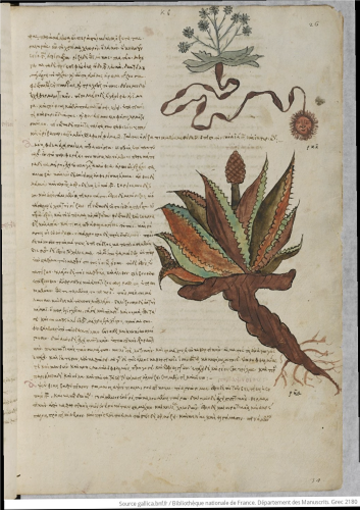
Photo credits: Bibliothèque nationale de France, Paris
The History of Science in the Medieval World (HSMW) summer school, organized by St Cyril and St Methodius University of Veliko Tarnovo, with Academic Theatre Ikaros, in cooperation with the International Summer Seminar in Bulgarian Language and Culture (University of Veliko Tarnovo), with the support of the Faculty of Slavic Studies, Sofia University is happy to announce its Second 2024 edition which will take place from 15 to 19 July 2024 in Veliko Tarnovo, Bulgaria.
In its pilot 2022 edition, HSMW Summer School introduced the participants to the medieval epistemic fields (sciences) which study the natural world (the kosmos) as a space, namely geography, cosmography, and astronomy. In 2024, we shift the focus to the history of knowledge and the practitioners and their practices: from the geographers and the astronomers, the map and instrument makers, to the users of medieval herbals and the artisans preparing graffito pottery and enamel.
The instructors include: Marie-Hélène Blanchet (CNRS, UMR 8167 Orient et Méditerranée, Monde byzantin); Chiara D’Agostini (Department of Culture and Language, University of Southern Denmark); Aneta Dimitrova (Faculty of Slavic Studies, Sofia University “St. Kliment Ohridski”); Stephanie Drew (Centre for Medieval Studies, University of York); Rossina Kostova (Department of Archaeology, Faculty of History, St Cyril and St Methodius University of Veliko Tarnovo); Divna Manolova (MSCA Paris Region Postdoctoral Fellow, Université PSL-Observatoire de Paris, SYRTE, CNRS); Angel Nikolov (Faculty of History, Sofia University “St. Kliment Ohridski”); Shannon Steiner (Independent Researcher, Practicing Goldsmith).
The participants will acquire fundamental knowledge concerning the place and role of the sciences in the intellectual world of the Middle Ages. They will also develop an understanding of premodern science as a spectrum of disciplines wider than the late antique framework of the four mathematical sciences (arithmetic, music, geometry, and astronomy) and inclusive of all epistemic domains dedicated to the creation, preservation, and transfer of knowledge. The School relies on a discussion-based and experiential / experimental format. That is, the School includes workshops, which will guide the participants into the use of medieval scientific manuscripts, texts, and instruments, and will introduce them to tradition and modern practice of graffito ware production in the city of Veliko Tarnovo. The lectures will be conducted in a hybrid way, whereas the workshops will be in person.
Application Deadline: 29 April 2024
In order to apply, please send a short bio and description of what motivates your application (maximum one page altogether). There is no need to submit your extended CV.
Please indicate in your application whether you would like to attend the Summer School in person or online.
Please address your application materials and your informal inquiries to:
Dr Divna Manolova at manolova.divna@gmail.com
Available places: The School offers ten places for in-person participants wishing to attend both the lecture and workshop sessions. There is no limit for the number of online participants, but their registration is restricted solely to the lecture sessions. During the selection process, preference will be given to MA and PhD students, but researchers, writers, artists, and non-academic professionals with an interest in the Middle Ages and/or History of Science are also welcome to apply.
We cannot offer any financial support to cover travel and accommodation expenses.
There is no participation fee.
The common discussion language of the School will be English. If the participants know a medieval scholarly language (for this edition: Latin, Greek and/or Old Church Slavonic), this would be an advantage, but it is not an essential requirement for participation.
For more information about the HSMW summer school and for the full programme, see here. The poster is available here.